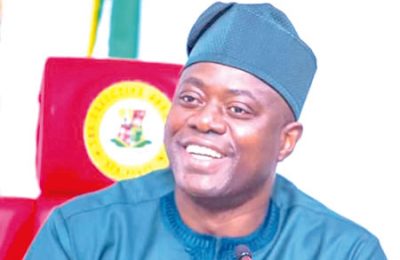WHILE I was growing up, I got interested in service delivery at the local government level to the extent that my first-degree project centered on the role of local government information officers in rural socio-political emancipation. I believed that a properly organised local government system would easily serve as a source of leadership recruitment for the other tiers of government. As youths back then, we participated in the zero-party election processes of General Ibrahim Babangida (retd) and even campaigned and ensured the election of a representative of the youths in the old Ogbomoso Local Government.
I also got fascinated by the 1976 Local Government reforms, especially the Dasuki report that midwifed the reforms. That reform established the presidential system of government at the local government levels. And that system was in operation at the nation’s third tier of governance until the arrival of the Fourth Republic, whose politicians have learned to move faster than the speed approved by the constitution in the power track.
And we truly saw several former local government operatives climb the ladder of leadership in the country in those days. Two former governors of Oyo State, the late Chief KolapoIshola and the late Chief Adebayo Alao-Akala were chairmen of local governments. Another former council Chairman from Oyo State who became a minister was, Elder Wole Oyelese. He made his name as a local government Chairman. Former Edo State governor, Lucky Igbinedion, won the 1999 election because of the fame he acquired as a council chairman in the state. Even my former boss, Senator Adolphus Wabara, former President of the Senate was a councillor and local government henchman earlier in his career. I know that examples of politicians who rose to prominence from the third tier of government dot the nation’s geographical spread in good volume.

But all that happened when sanity prevailed at the local government level. Today, the political engineering masterminded by the first set of governors of this Fourth Republic has truncated the channel of leadership recruitment the councils provided earlier in the life of this nation.
The whole brouhaha started around 2000 when the first set of governors of the current Republic started agitating for local government elections. The Independent National Electoral Commission(INEC) under President Olusegun Olusegun Obasanjo had seized the electoral register to prevent elections into the councils. When the Southern governors held a meeting at the Ondo State Government House, Alagbaka, Akure, to press home their demand for a release of the register, the nature of things to come had started emerging.
A South West governor who noticed the vociferous nature of arguments by his South-South counterparts on the subject matter asked two of his colleagues from the region if they had any structure to conduct the elections if the president should approve the release of the register. The answer the elderly governor got swept him off his feet. The younger South-South governor told him ‘Baba, if the register is released today, I will conduct the election tomorrow because the result is already in my pocket!’ The shocked South -West governor was unable to shake off his bewilderment even at dinner when he related his experience to a team of select journalists.
And true to that declaration of the said governor, as soon as the Federal Government released the voters’ register, and the State Independent Electoral Commissions(SIECs) started conducting the council polls, we started hearing of landslide and moonslide victories secured only by the ruling parties in each of the states.

The development completely eroded the autonomy the local governments enjoyed in the days of the military as the player of the piper started dictating the tunes in whatever direction. The governors picked whoever they liked as council chairmen and the essence of the councils serving as avenues of leadership recruitment got completely eroded.
That aberrant conduct by the governors had apparently informed the decision of the Federal Government, which last week, through the Attorney General of the Federation and Minister of Justice, Prince Lateef Fagbemi, took the bold step of dragging the 36 state governors to the Supreme Court, to free the 774 local governments off the shackles of control by the states.
In the suit marked SC/CV/343/2024, which the apex court was already hearing, the Federal Government predicated its contention on 27 grounds, principally seeking autonomy for the councils.
Though the apex court is bound to conclude the matter one way or the other, as far as the Federal Government has brought the case before it, the issue of local government autonomy in this era has become quite complicated. There is the legal angle to it and then the political angle. The 1999 Constitution, which guaranteed the existence of a democratically elected government at the council levels also in a way tied the local governments to the aprons of the states by setting up the State Joint Local Government Account in Section 162 and then cemented the quicksand called LG autonomy via Section 197, which created the SIECs. Those two impediments can only be removed by constitutional amendment. And that’s an area where the states hold the aces. Since the 7th National Assembly, attempts to guarantee local government autonomy through proposed amendments to those sections have been rejected by the state legislatures. How the Tinubu government goes about navigating that shark-invested corridor, remains to be seen.
While the apex court would have resolved the legal issues around local government autonomy at the conclusion of the suit filed by the AGF, I think a full-fledged national dialogue might be needed to resolve the political angle to the problem. One is the amendments to sections of the constitution and then the claims by some states that payment of primary school teachers and primary healthcare workers could be endangered with direct payment of LG funds to the councils. It is true that several councils owed teachers backlogs of salaries when the military exited the scene in 1999. The story, however, is for the states to come clean with the facts and figures, rather than dipping hands illegally into the funds standing to the credit of the councils. Another question that we have to find answers to is the issue of the performance of the six Area Councils of Abuja. in Abuja, there is no governor who supervises the spending of the council allocations, so why are the councils in Abuja refusing to make any impact? It should be a whole gamut of conversation.
ALSO READ: South Africa election: ANC loses 30-year parliamentary majority







